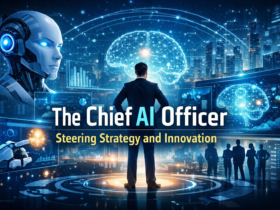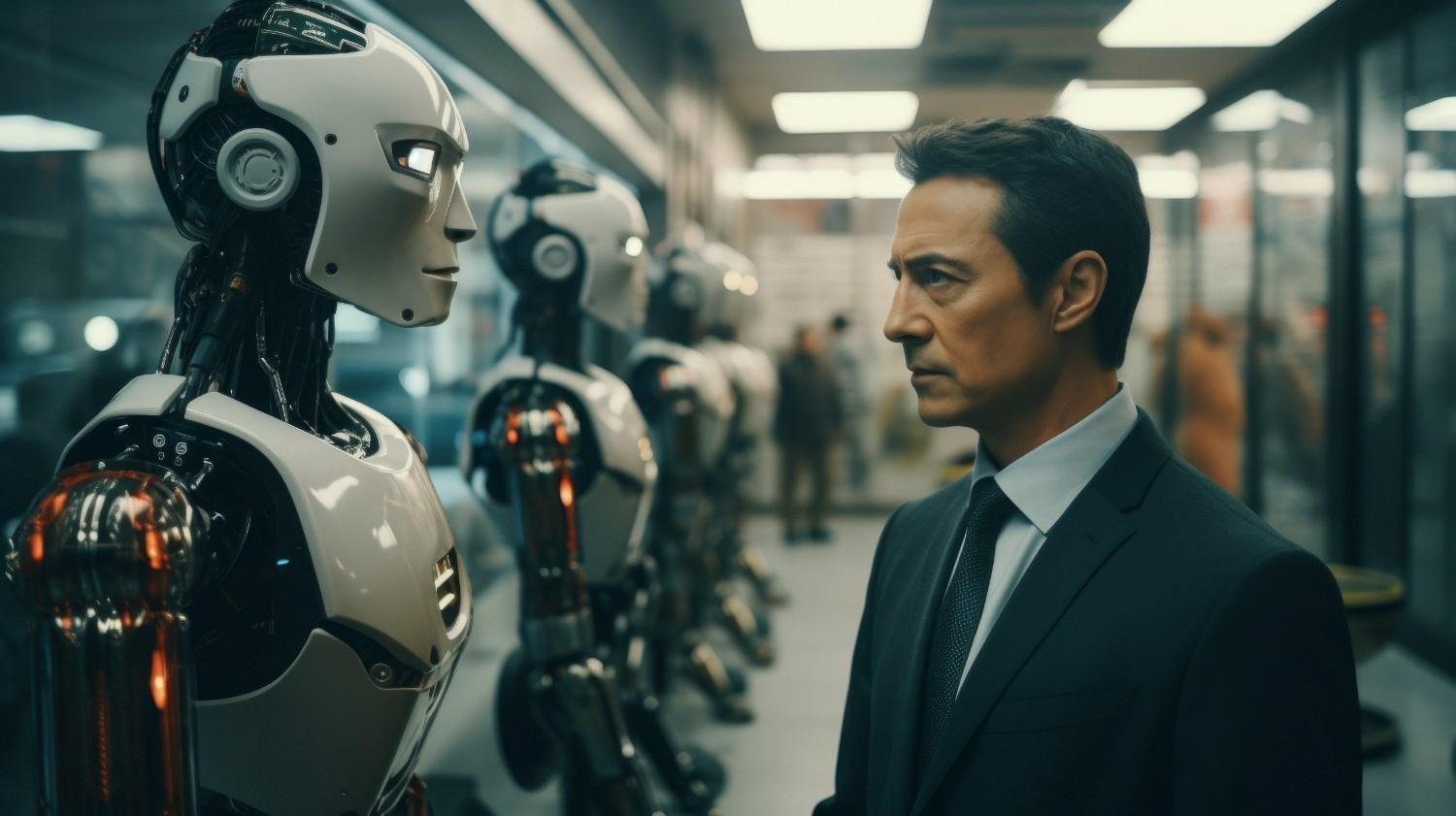Even as the tech world is being transformed into a new ground by artificial intelligence, the world has also eyed the deeper debate of why there has been the divide between agentic investments in the world of AI. Certain analysts think that agentic AI will be the new avenue of autonomy and innovation, whereas others fear the intrinsic hazards of self-deciding machines. This split is an indication of further fears towards power, morals and the future of technological advances.
The science of Agentic AI
In order to comprehend the complete reasons as to why the AI world is divided on agentic investments we need to first comprehend the concept of agentic AI. This is unlike in the traditional AI models which use or rely on human prompting but agentic AI has the agency to set goals, use mind skills and act with minimal human control. It is powerful, although very unpredictable because of this autonomy.
These AI systems are rather not tools but are more like collaborators or agents. They are able to take initiatives, be open to changes and also make some vital decisions. Although the evolution presents an enormous potential, new issues emerge.
The Agentic AI Promise
Proponents of agentic AI explain it can disrupt entire industries. They are of the view that this technology can:
Automation of complex work in such areas as medicine, finance, and logistics
Improve efficiency by lowering the use of human supervision
Develop more intelligent, self-improving systems which remain in progresses of learning
Such positive perceptions reason out one side of the division of opinion on agentic investments in the AI world. Firms and financiers are scurrying to invest in agentic AI platforms, in fear of lagging behind the rivals in the event that they do not.
Issues of Independence and Authority
Yet, there are numerous sirens emerging as several professionals are raising a red flag and this warning qualifies as one of the reasons why the AI world is divided regarding agentic investments. With no oversight, AI systems could make decisions that are hard to predict and too difficult to control.
The issues of concern are:
One cannot predict results in high-stake situations such as healthcare or military applications
Dissplicity to human value system, resulting in unethical choices
Security threats, in particular hacked or exploited by these systems.
To the skeptics, allowing machines to make decisions without leaving explicit precautions is a dangerous direction. Their reluctance still affects why the world of AI is divided when it comes to agentic investments in academia and business.
Human oversight, and Ethical Dilemmas
Ethical complexity of agentic decision-making is another focal concern in the explanation of why the AI world is divided on agentic investments. In the case of two adverse consequences to be considered by virtue of a self-driving car, then what is the responsibility? Who is answerable should a financial AI present a mistake that runs into millions?
Opponents accuse agentic AI to erase accountability and result in the system acting outside of morality. It is possibly more dangers than benefits until we can alleviate the dangers of leaving AI to perform as it wishes.
Frenzy Investment to the level of Responsible Innovation
In spite of this, investment in agentic AI is flourishing. Such tech giants as Google, OpenAI, and Meta, are already spending heavily on models that are more independent and adaptable. However, such the boom has only increased the argument of why the AI world is divided on agentic investments.
Investors desire to have a fast profit and innovation, whereas researchers demand care. The need to make money in novel AI will cause organizations to introduce systems that have not been comprehensively tested or comprehended.
This conflict is one of the biggest sources of polarization, and one of the reasons that the world of AI remains divided over agentic investments.
The lack of regulations and international inequality Regulatory Gaps and Global Disparities
The lack of global regulation is one of the most feasible explanations of why the AI world is divided upon the issue of agentic investments. Although there are governments working on laws involving AI, the majority of the regions have yet to come up with comprehensive framework to support development and deployment.
The priorities vary in the countries:
Europe is concerned with privacy, morality and close regulation
Innovation and freedom in markets are highlighted in the U.S.
China focuses its AI plan using state control and monitoring
These contradictory strategies create doubts, in the mind of the investors as well as developers, and add to the general discussion on the reasons why the AI world is divided in terms of agentic investments.
The role of Public perception
Another reason as to why the AI world is divided over agentic investments is attributed to public confidence. In many cases, AI systems that ontologically act independently are not trusted by many people. Such high-profile failures as, e.g., biased algorithms or rogue chat-bots have further instilled concerns in people.
In absence of social trust, agentic AI will be composed in the market-even in case it works perfectly as a technical matter. To tip the balance of trust and focus on healing the gap, ethical transparency, effective communication, and responsible designs are crucial to change the narrative in the mind of people.
Use Cases and Real-World Impact in agrarian industries
The reason behind the division in the AI world on agentic investments also begs to be analyzed through real life applications. The agentic AI is already investigated in:
Healthcare: systems which aid in diagnoses and treatment planning
Finance: Trading bots bots based on investment decision
Retail: Online personalized shopping agents representing the customers
Military: scout-based surveillance by autonomous unmanned vehicles and robot decision-making
These are illustrations of the utility of the technology as well as the danger of the medicine. The issue of control, openness and moral buffer is heightened with every new deployment.
Is It Possible to Reach Middle Ground?
Certain analysts hold that there exists a trade off to be compromised. According to their argument, when the perceptions regarding agentic investments are split within the AI world, it should become the starting point of designing balanced approaches. This includes:
New AI that makes humans understand and trust decisions
The human-in-the-loop systems are used to retain control
Development of cross-national norms of agentic behavior and risk management
Provided that the potential of AI is not an isolated concept, the stakeholders could fill the existing gap and develop AI in a more responsible direction by considering both the opportunities and the threats alike.
Conclusion: Ushering in the Divide
But in a nutshell, the argument about the reason the AI world is divided between agentic and non-agentic investment is a multidimensional one. Agentic AI has immense potential- only when it is approached with caution- in terms of the ethical and legal aspects of regulation.
The issue will be how to innovate the technology, without jeopardizing safety and control, as technology continues to develop. As an investor, developer, policymaker, or end-user, it is important to know this divide so that the future can be shaped in the aspect that humanity can be served by the agentic AI and not vice versa.













Leave a Reply
View Comments